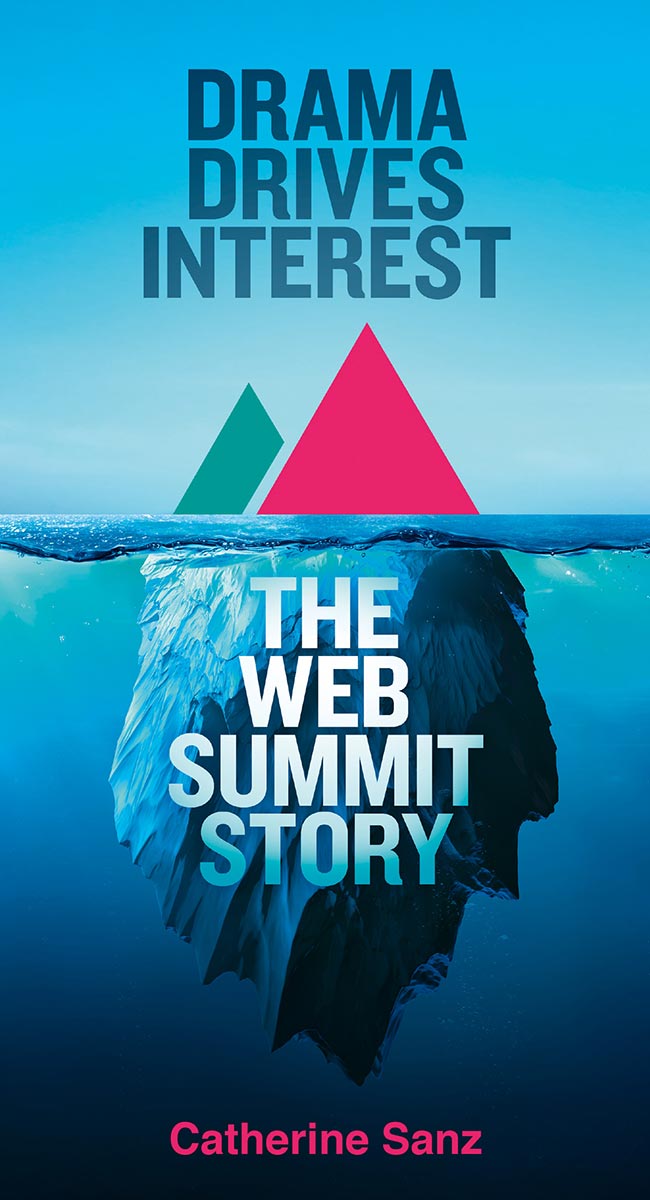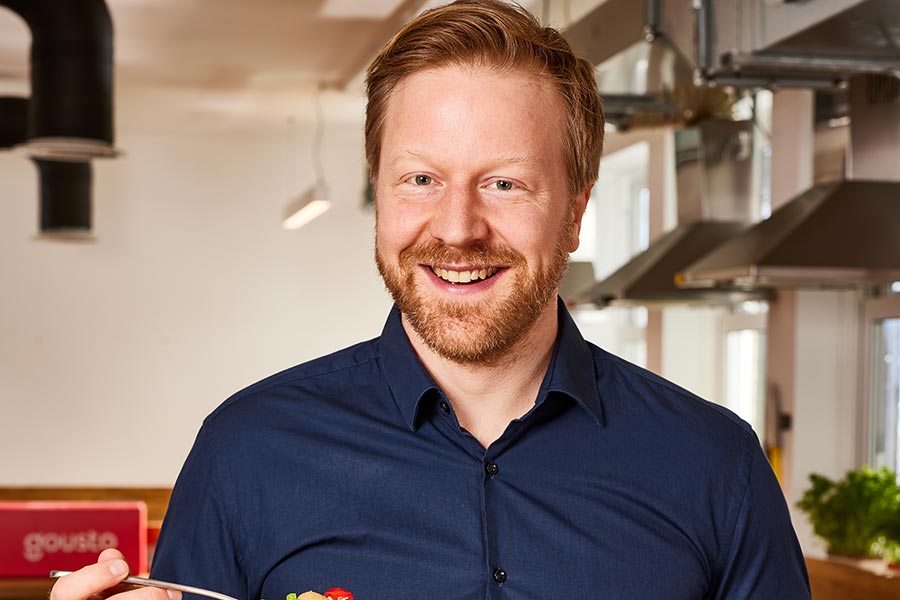Business Post’s legal correspondent Catherine Sanz tells Ben Haugh why she decided to chronicle the story of Web Summit in her new book, Drama Drives Interest
Founded in Dublin in 2009 by Paddy Cosgrave, David Kelly and Daire Hickey, Web Summit has grown to become the largest tech conference in Europe.
Its first seven events were held in the Irish capital, before it moved to Lisbon following a fallout with the Irish government.
It was the first of a number of controversies that have surrounded the company since its inception.
You have described this as the most compelling Irish business story of your generation. Were you intimidated by taking it on?
I was debating for a long time whether to do it, because I knew it was obviously going to be a huge task.
It was going to be really problematic. I had no idea what it was going to turn into.
How did the publishing deal come about?
I pitched the book. After I had written this big, long profile on Paddy [Cosgrave] following Collision [Conference] in Toronto in 2022.
It did really well. And somebody told me: “You should do a book on this.”
I sent an email to Conor Nagle, who was the managing director of Harper Collins Ireland at the time.
He said: “I’m interested. Let’s get coffee.”
So it just went from there.
Tell me about the title.
After I wrote that profile, I was really worried ahead of it coming out because I thought it was quite critical.
It mocked him for quite a few things, and I thought he was going to go after me online.
And when it came out, he sent me a WhatsApp saying: “Well done, well-written piece. You absolutely nailed me.”
And then he went online and he posted that it was riddled with inaccuracies and he was going to respond with a legal letter.
I messaged and asked why he felt the need to do this. And he said: “Drama drives interest.”
What attracted you to the story?
It was a guerilla startup story amidst the landscape of Ireland at the time.
Telling the story of Web Summit involves telling a potted history of the last 15 years of Ireland.
You have the crash. It came out of the ashes of the crash, basically. And then with the recovery and the way that things started booming, the influx of multinationals and the glossy highrise buildings in the Docklands.
And then you have this, essentially an event company, pushing through brute force this idea of Ireland as a destination.
The characters in it are fascinating, full of personality.
There’s undeniable drama, there’s intrigue, there’s interesting characters, the main one of which — I think part of what makes him so interesting — is not afraid to put himself out there.
Most CEOs shy away from media attention.
It sounds like you admire him?
I definitely admire what he and the other founders and a lot of the people in the early days of Web Summit were able to do.
I think it takes a lot of bravery to put yourself out there in that way.
But no, I wouldn’t say I admire him as a person.
How did you prepare to write the book?
I spoke to quite a few journalists that had written books about how they went about it and I got some broadstroke advice like “start from the outside and work your way in” as a storytelling arc.
And then it was just a matter of trying to talk to every single person I could.
I spoke to over 85 people. I probably reached out to over 400.
A lot of people didn’t want to talk, understandably. For some people, it’s water under the bridge.
A lot of people don’t like reflecting on the past. A lot of people thought, oh, you know, they’re scared of retaliation if they said anything negative.
Other people didn’t want to be associated with something they thought was going to be too negative.
A lot of them are anonymous.
Was that something you had to negotiate with your publisher?
It was expected. Anonymous sources are a really foundational bedrock of journalism generally.
I think it was accepted that a lot of people, whether through their own fear or maybe contractual obligations, can’t talk about their time at Web Summit.
I don’t think that was a problem. I think, for me, it was just really important to try to make sure those boundaries were set with them at the beginning.
Are we talking on the basis that I can use an anonymous quote or are we talking on the basis that you don’t want anything attributed to you?
I tried to be as careful as possible with setting those boundaries.
There’s one person who is obviously not interviewed — at what stage did you that realise that Paddy Cosgrave would not speak to you?
That was interesting, because when I started writing the book, Paddy and I had a conversation about it.
He was very excited about it. He felt flattered and said it was great for the ego.
This was in about March of 2023. We had an open channel of communication.
I interviewed him in April of that year when they announced they were moving to Qatar. And we also talked about the book in that discussion.
And then he would send me the odd message throughout that summer, but it started to get more and more pointed.
I think he wanted to make sure the book was going in a specific direction, and he thought it wasn’t going in enough of that direction.
We had a heated argument in July of last year and since then we didn’t really have any contact, although I saw him at the offices in October, a few days before he resigned.
There was a bit of a sting in his tail, but he was still amicable.
He was chatting away and making jokes about the book in front of people.
I think I knew we were going to fall out at some stage. I think my publisher wasn’t very surprised about that, either.
So where is the relationship now?
I haven’t heard anything from him. He’s definitely made life difficult for us in the lead-up to it.
We put a lot of questions to him and to Web Summit to see if they wanted to respond to them, and they didn’t engage. And they sent us legal letters.
I think this book is really fair. I would say that, but most of the people that I’ve spoken to also say it is really fair.
It doesn’t take away from his successes, but it, I think, shows a warts-and-all view of what the last 15 years were like.
Do you read the reviews? Most have been very kind, but The Irish Times one was spiky.
Yes, I do. And I mean, on the record, you can say that review was weird.
I wanted to ask you about writing a book about a story that is still developing. There were some major developments involving Web Summit earlier this year. Was that difficult?
It was crazy. Keep in mind that when I started writing this book, Paddy was CEO and I was writing a book about a well-known business and a guy who had essentially stoked controversy for his entire career.
And then in the middle of it, six months into writing the book, he resigns in a storm of controversy.
It was almost like art imitating life, imitating art, or something like that.

Is there going to be a sequel?
The only thing that would be worth doing that for is if the court cases go to a full trial, because that would be explosive.
They’re definitely, in recent memory, among the most contentious court cases in the High Court. There’s five different cases involving three founders and they are all suing each other.
But would I write another book? I don’t know. I might have done the Men in Black trick on myself and forgotten everything I learned by then.









